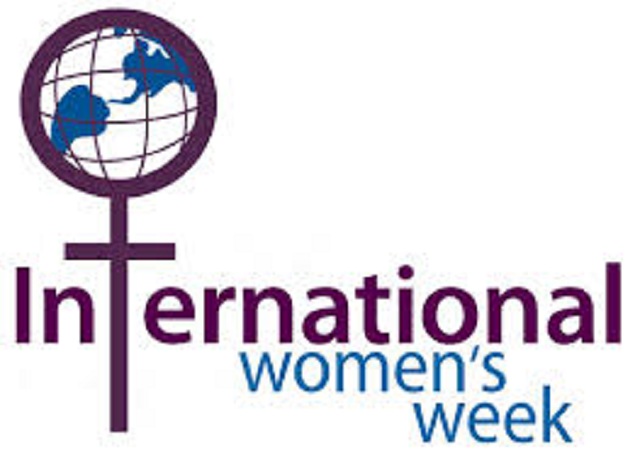Women’s week: Working together to stop child marriages

Patient Sibanda
At the raw age of 13, Princess Nyoni of Pumula East suburb in Bulawayo, had already strayed into the sacred institution of marriage.
She was a mother and housewife.
Women like Nyoni have little to celebrate in terms of achievements, as the world marks the International Women’s week.
International Women’s Day, (March 8) is a day celebrating the social, economic, cultural and political achievements of women globally.
The day, which was celebrated on Monday this year, also marks a call to action for accelerating gender parity.
Nyoni, now 18 and a mother of two, recently ran away from her in-laws’ home after encountering unbearable challenges in her five-year marriage.
She blames her parents for her suffering, accusing them of having forced her into marriage with her then lover, Shepherd, 23.
Nyoni fell pregnant before her thirteenth birthday.
This forced the teenager to drop out of school in 2011, just after sitting for her grade seven public examinations at a local primary school.
She says her in-laws did not pay lobola for her and she never felt loved at their place.
“My parents forced me to go and stay with Shepherd after telling me that they could no longer continue supporting me as I was then someone’s wife. My in-laws engaged my parents and negotiated with them before I left to stay with my husband. However, they never paid a single cent to my parents,” she says.
But asking her about her experiences in her ill-fated marriage was like reopening old wounds. Nyoni kept shedding tears as she narrated her story.
“It was never my wish to be married at such an early age. It pains me that I failed to proceed to high school when my age mates proceeded with their education.
There wasn’t much I could do though after falling pregnant and my parents made it clear to me that they were not in a position to support me. Unfortunately, I had a miscarriage and I suspect this was due to the stress I was exposed to during my first pregnancy,” said Nyoni.
The unplanned “marriage” coupled with her pregnancy brought out Shepherd’s true colours – he did not love her.
His attitude and treatment of Nyoni was slowly and subtlety turning the youthful mother into a cold being She felt her man had denied her the right to education when he impregnated her at a young age.
“There was no joy to talk about in my five years of marriage. I dropped out of school only to be subjected to a hellish life not fit for a 13-year old girl.
“I genuinely believed my husband loved me and I was shocked when he started abusing me. It is Shepherd who impregnated me, causing me to drop out of school but when I went to stay with him he became so violent. He would beat me until I faint. His mother influenced him to beat me all the time,” said Nyoni.
She says her relationship with her mother-in law (name withheld) deteriorated after her husband was sent to jail last year in October.
“My husband is at Khami Prison serving a two year-jail term for robbery. I am struggling to support my two children on my own. I had asked my mother-in-law to allow me to look for a job as a house maid so that I can support my children but she was against that idea. She said I was disrespecting her and later forced me out of her house,” says Nyoni.
She might not have physical scars on her body but emotionally she is still hurting. Her mother-in-law assaulted her during one of their many squabbles forcing Nyoni to flee.
“Life is not easy for me. My relatives are not willing to support me as well. Even neighbours have little understanding of my situation. I am now staying with one of them. I wish I could turn back the hands of time. I got married to Shepherd thinking that my life will be better, but things turned out to be worse,” said Nyoni.
She dreams of going back to school but it’s now a question of too little too late. Her two kids aged two and four are turning from a blessing into a burden as she struggles to work her way out of poverty.
Again, turning to her mother has yielded equally negative results – Nyoni’s mother cannot afford to pay her school fees let alone fend for her children.
“I regret the decisions I made years back but I had limited options. I started dating at an early age because life was not rosy for me. I love my children but I can hardly take care of them.
It’s difficult to get a job because of the children. They are an obstacle as they need me to be with them most of the time. My mother was married to another man who was not willing to support me. It is not easy to live with a step-father,” moaned Nyoni.
When she fled her in-laws’ house, her mother-in-law wasted no time in reporting her to the police.
Her offence: neglecting her children.
“I ran away after she beat me leaving my children behind. After that she reported me to the police who arrested me last December. I then appeared in court facing a charge of child negligence and was warned and discharged,” she said.
Nyoni is one of many young women who are victims of early child marriages in Zimbabwe.
Bulawayo Provincial Development Officer in the Ministry of Women Affairs, Gender and Community Development, Vaidah Mashangwa, says most young girls who engage in early marriages would not be mature enough to perform household chores.
This, she says, often results in misunderstandings between the girls and their in-laws.
Mashangwa says early child marriage increases child mortality rate because the young mothers’ bodies would not be strong enough to give birth.
“We desire girls to engage into marriage when they are fully grown up and when they could actually make their own decisions. Let us allow the girl-child to grow and attend school. Early marriages increase child mortality rate. We should afford the girl child equal opportunities with the boy child,” she said.
Mashangwa highlighted the challenge of young girls in negotiating safer sex.
She said girls end up being infected with HIV as well as other sexually transmitted infections owing to their limited knowledge.
Mashangwa said as a ministry they usually hold awareness campaigns in communities, churches and tertiary institutions where they interact with early child marriage victims.
They also advice the innocent girls to remain focused, warning them of the dangers of early marriages.
“We have a few cases of girls who report cases of early marriages to us. After such campaigns a few come out in the open and tell us of their problems,” said Mashangwa.
She said her ministry often works together with other gender- based organisations such as Msasa Project and female lawyers.
“We also offer counseling especially for early child marriage victims. We make them decide the way forward after counseling. Some may choose to take their matter to the court. We let them decide,” she said.
The Constitutional Court recently ruled that no child under the age of 18 can legally enter into marriage.
In January this year, Deputy Chief Justice Luke Malaba declared section 22 (I) of the Marriage Act chapter 5:11 which previously allowed children aged 16 years to marry unconstitutional.
He made the ruling after lawyers approached the court defending two early child marriage victims.
According to the African Union 14 million under-age girls are estimated to be married in Africa each year.
A Zimbabwe National Statistics 2014 survey showed that 24 percent of girls between 15 and 19 years in Zimbabwe are married while 1,7 percent boys in the same age group are married.









Comments